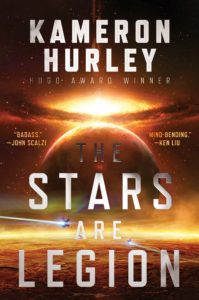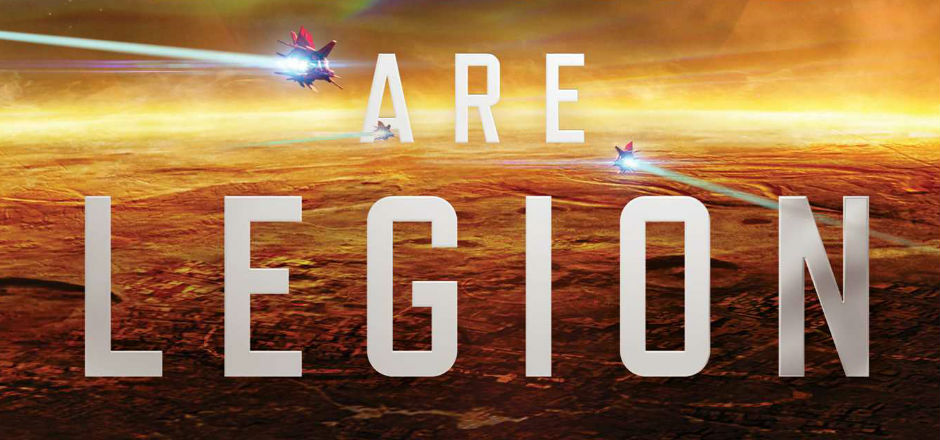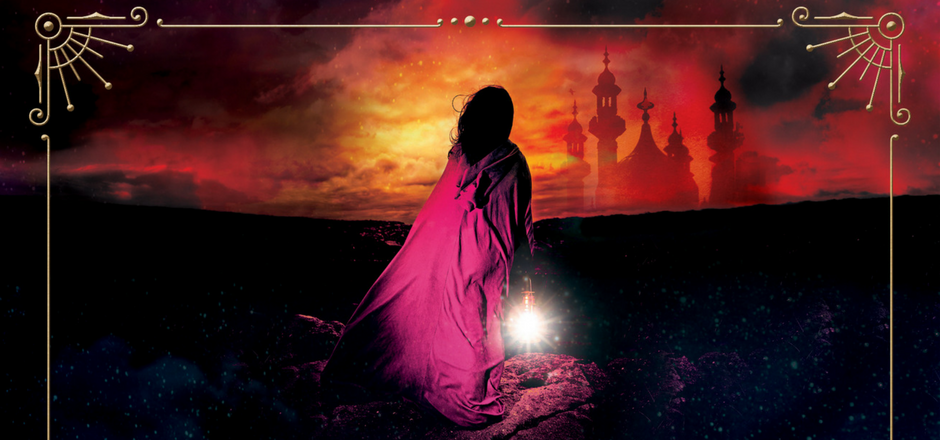Zan awakes with no memory of who she is, surrounded by the Katazyrna people who say are her family but whom her instincts scream at not to trust. She could save the ship from decay and ruin — but the more she learns about the Katazyrna, the more she discovers their lies, even from the woman she loves.
 As a fan of both space opera and Kameron Hurley, I was extremely excited to hear about The Stars Are Legion. Having read Hurley’s The Mirror Empire along with a number of her essays, I knew I’d enjoy the voice of Legion, and I looked forward to seeing a fantasy writer playing in a science fiction universe.
As a fan of both space opera and Kameron Hurley, I was extremely excited to hear about The Stars Are Legion. Having read Hurley’s The Mirror Empire along with a number of her essays, I knew I’d enjoy the voice of Legion, and I looked forward to seeing a fantasy writer playing in a science fiction universe.
While Legion held a number of themes I’ve come to expect from Hurley’s work, though, my main observation about Legion was that it really didn’t feel strongly like a science fiction work. Much of the science in Legion just doesn’t work — I would describe the book more as a science fantasy. (I have a theory that the book isn’t actually set in space, but inside a human body, but that’s a topic for another discussion.)
The characters in Legion are largely motivated by abuse. Jayd Katazyrna, the woman Zan loves, has an extremely tense relationship with her mother, Lord Katazyrna; as the story progresses, we learn more about Lord Katazyrna’s psychological abuse of all her children, which manifests in different ways in each. Abuse takes many forms in the Legion: the abuse the upper classes give to the lower, the way the Lords abuse their power as they try to take even more, and the way the people abuse each other. While it does make for an intense and compelling novel, the depictions of psychological and physical abuse can be very upsetting.
Another reason to caution readers away from Legion is for the somewhat disturbing imagery present in the novel. The ships of the Legion are living beings and are made of actual flesh. One of Zan’s first encounters with others on the ship is in a room containing a table covered with stitched-on human skin.
The people of the Legion also eat gelatin made from their dead compatriots as their primary food source. Cannibalism isn’t a new element in Hurley’s work, though — Mirror Empire features a culture that ceremonially consumes its dead as part of their religion — but the attitudes in Legion are very different, and it’s probably more than a bit disturbing for squeamish readers.
There’s one more aspect of Legion I feel should be discussed. A lot of buzz I’ve seen around this book in particular is that it’s about lesbians in space. While this is technically true, I would not at all recommend this book for readers seeking a lesbian romance story.
Every character in The Stars Are Legion is a cisgender female. This is an important plot point, actually. And yes, every romantic relationship is a lesbian relationship because of that fact. However, there are no romantic relationships in this book that I would consider healthy; if I read a book for the romance aspect, I do want to see healthy and happy relationships, not the twisted and abusive ones found here.
Legion is a wonderful book, and I did enjoy it for the way it made me think about the world, but it’s not a book to read if you’re looking specifically for better and more diverse types of romances. If you’re not super interested in happy romances, this would be a perfectly fine book for you, but if any book epitomizes our Toxic Romance theme for this month, this one is it.
While I truly enjoyed The Stars Are Legion, it’s definitely not perfect for all readers. It’s a great science fiction read for fantasy-lovers and perfect for people who aren’t precisely squeamish. And, of course, avid Hurley fans will truly enjoy this book.
4 out of 5 stars
—
This review contains affiliate links. While Girls in Capes does make revenue from purchases made at affiliate links, reviews are not paid, and all reviews contain the staff writers’ honest opinions of the work.
[coffee]






